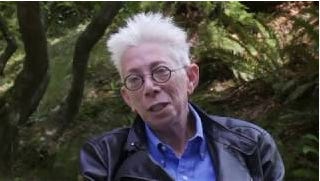The ethnographic challenge
I’ve been reading more of Peter Clough’s book, which is centred around five fictional short stories, each set in a school and each deeply unsettling (to me, at least).
Here, for example, is how the story ‘Rob’ begins:
When Rob Joynson was 43 he came into school on a Tuesday morning much as usual; and passing at 10.40 by a maths class taken by Michelle G. – a probationer of 23 – and hearing terrible noise; and seeing through the window a boy at the back fetch a fat gob on Michelle’s back as she walked down the aisle smiling, smiling too, too nervously, her hands doing ‘Down, please: down, down’ at the noise; seeing this marbled yellow gob on Michelle’s ordinary blouse on her decent body, Rob Joynson rushed into the room and to the back and took the boy – Mark something – by the ears, both ears, and pulled him up out of – through almost – his desk and repeatedly smashed his head against a chart of tessellations on the wall. And Michelle pulled at him from behind and screamed, and he twisted the boy down by his ears and pushed at him with his foot, kicking until he was quite under the desk. Then Rob started to cry and there was a terrible silence … (37)
They are complex stories, and full of tensions and ethical challenges. There are no simple truths about either the issues or the characters.* These are ‘ethnographic operas’ that I imagine Deborah Britzman applauding, where characters negotiate (always problematically, often unconsciously and inarticulately) competing worlds.
To speak and act as if there is one monolithic culture of teachers, students, or schools is to take up a discourse that is at once authoritative and impossible. Within any given culture, there exists a multiplicity of realities – both given and possible – that form competing ideologies, discourses, and the discursive practices that are made available because of them. It is within our subjectivities that we can make sense of these competing conditions even as these competing conditions ‘condition’ our subjectivity in contradictory ways. (Britzman 2003, 71)
Peter Clough’s stories are clearly evidence-based. In his book, he is explicit about where the evidence came from, and how he used the evidence to create these fictional short stories.
But the evidence isn’t drawn upon to prove anything.
He argues that narratives and fictions seek to evoke rather than to explain (73) and need to be judged according to their verisimilitude rather than their verifiability (15).
When I reflect on the impact his stories have on me as a reader, I can see how this kind of educational writing achieves something that more conventional research or scholarship cannot do. It takes me behind the scenes, into the lived lives of people involved in educational settings. It troubles any superficial notion I might have that solutions to difficult policy issues is simple, because lives are at stake, and lives are complex. Conflict in real life is not only between generations, classes, ethnic groups or economic interests; conflicts in real life are also internal to individuals.
The ethnographic opera is played out on many different levels, within and between characters, within and between groups.
Translating life’s realities as lived by men and women into story, and doing it in such a way as still to be believed, is the ethnographic challenge. (64)
**********************
Clough quotes Stronach & MacLure 1998:57 as follows: "One goal [of educational research] must be to produce accounts which deny the reader [the] comfort of a shared ground with the author, foreground ambivalence and undermine the authority fo their own assertions."
******************
Britzman, D. (2003). Practice Makes Practice: A critical study of learning to teach, revised edition. Albany, State University of New York Press. Clough, P. (2002 ). Narratives and Fictions in Educational Research Buckingham, Philadelphia, Open University Press.






